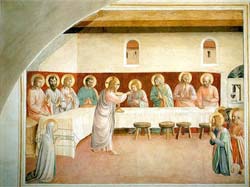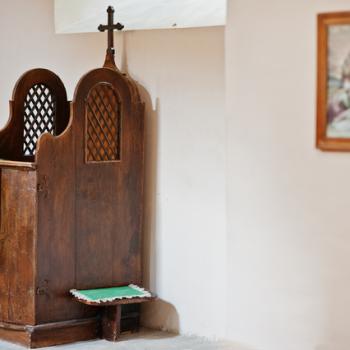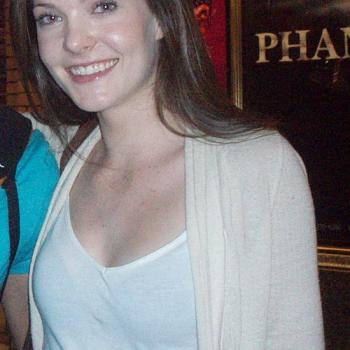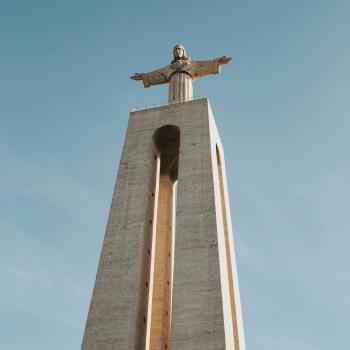By Jessica Coblentz
 Only a few days ago, Francis Cardinal George of the Archdiocese of Chicago released a letter entitled, "Sacramental objectivity in a world of religious subjectivism." Presenting the sacraments as that which objectively unifies Catholics, George also offered a number of pastoral prescriptions for properly engaging these rituals amid a church of immense diversity.
Only a few days ago, Francis Cardinal George of the Archdiocese of Chicago released a letter entitled, "Sacramental objectivity in a world of religious subjectivism." Presenting the sacraments as that which objectively unifies Catholics, George also offered a number of pastoral prescriptions for properly engaging these rituals amid a church of immense diversity.
One strong assertion in the pastoral letter was the importance of following official liturgical rules. For instance, he explained, "Rules to preserve the nature of the Eucharist as a sacrament of unity preclude using the reception of Holy Communion as a moment for public protest." He continued, "The Rainbow Sash organization tried to manipulate the Eucharist for its own purposes some years ago and might try to do so again. Even granting subjective good intentions, as was the case with those who interrupted the Easter Mass two years ago in order to protest against the Iraqi-Afghanistan war, such actions run counter to the nature of the sacrament and deserve to be condemned."
When I ponder my experience of the Catholic sacraments, I often find myself in agreement with Cardinal George's charge that these rites and rituals are what unify us as a church. Liturgy gathers people from their respective residences for a weekly celebration of the stories and beliefs that commonly constitute their lives. Our baptism initiates individuals into a single tradition that spans centuries and continents. The Eucharistic meal commemorates the community's unity with God and with one another. Meanwhile, the songs that fill the background of these rituals affirm, "All are welcome!" They proclaim, invitingly, "We are the Body of Christ."
Indeed, the Catholic liturgy has been the site in which I have felt most Catholic -- most connected to this trans-historical and international Christian communion. Through these common rites and rituals, all of us are one. Lately, however, I'm beginning to question this unity that I have so often perceived in Catholic liturgy. In fact, many recent events have me questioning its present existence as well as the sheer possibility of this unity altogether.
"It has become painfully clear that the liturgy, the prayer of the people, is being used as a tool -- some would even say as a weapon -- to advance specific agendas," charged Father Michael Ryan, pastor of Seattle's St. James Catholic Cathedral, in a recent America Magazine article. Angered by the newly proposed English-translation of the Roman Missal, Ryan founded a liturgical campaign spanning Roman Catholicism's English-speaking lands, entitled, "What If We Just Said Wait?" The campaign posits that the revisions constituting the new version of the English Missal are rooted in the reactionary agenda of many in church leadership rather than the well being of the Church's prayer life. "For evidence, one need look no further than recent instructions from the Congregation for Divine Worship and the Discipline of the Sacraments that have raised rubricism to an art form," asserted Ryan, "or the endorsement, even encouragement, of the so-called Tridentine Mass."
Whereas George seems to suggest that the Vatican's liturgical rules facilitate "objective" unity across cultural "subjectivism" and diversity of the church, Ryan's words and campaign seem to suggest quite the opposite: that the rules and "rubricism" of today's liturgical debates serve specific agendas rather than the collective, contemporary church. One could use George's own example of the Rainbow Sash organization to support Ryan's claim. George dismisses members of this group as subjectivist rule breakers who threaten the unity of the church. Meanwhile, these protesters challenge a church whose rules have already excluded them from its objective unity. Ryan and his campaign challenge the rules the George deems central for the preservation of church unity.
Surely, both parties have a genuine interest in church relevance and unity. Yet, their agendas appear mutually exclusive. What does this imply for my experience of liturgy? For the unity I have often felt during my participation in the sacraments? It has left me wondering whether the unity I have felt is much more a fantasy than a reality -- a noble ideal that Christ may have prescribed, but one that seems impossible for us to manifest.
The truth is that I'm among those implicated in George's criticism. I don't always agree with some of the official church rules concerning liturgy. What if I dream of changes to our liturgical rules? What if the rules he deems objective often seem quite subjective to me? What kind of unity is possible for people like me who simply don't find themselves in agreement with these rules that supposedly constitute church unity? Am I undermining church unity, or is it these rules, themselves?




